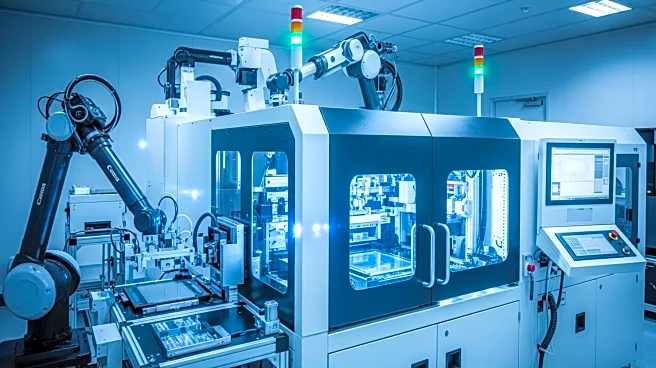What's Happening?
Amkor Technology has announced an expanded investment in its semiconductor packaging and test campus in Peoria, Arizona, increasing the total project investment to $7 billion across two phases. Originally expected to cost $2 billion and create 2,000 jobs, the expanded scope now aims to create up to 3,000 jobs. The project will feature over 750,000 square feet of cleanroom space and will be the first U.S.-based high-volume advanced packaging facility. Supported by the CHIPS for America Program and other incentives, the campus will utilize smart factory technologies to meet market demands for AI, high-performance computing, mobile communications, and automotive applications.
Why It's Important?
Amkor's investment is crucial for strengthening U.S. semiconductor leadership, particularly as the industry faces global supply chain challenges. The new facility will enhance the resilience of the semiconductor supply chain and support major customers like Apple and NVIDIA. Arizona's leadership in semiconductor investment, with over $205 billion announced since 2020, positions the state as a hub for advanced chip processing technology and workforce development. This expansion aligns with national efforts to boost domestic semiconductor manufacturing and reduce reliance on foreign sources.
What's Next?
Construction of the first manufacturing facility is expected to be completed by mid-2027, with production starting in early 2028. The development will complement TSMC's front-end wafer fabrication, providing full end-to-end semiconductor manufacturing capabilities. As the semiconductor industry continues to grow in Arizona, further investments and collaborations with educational institutions for workforce development are anticipated.
Beyond the Headlines
The expansion of Amkor's project reflects broader trends in the semiconductor industry, including the push for domestic manufacturing and innovation in packaging technologies. The focus on smart factory technologies and scalable production lines indicates a shift towards more efficient and adaptable manufacturing processes, which could influence global semiconductor production standards.











